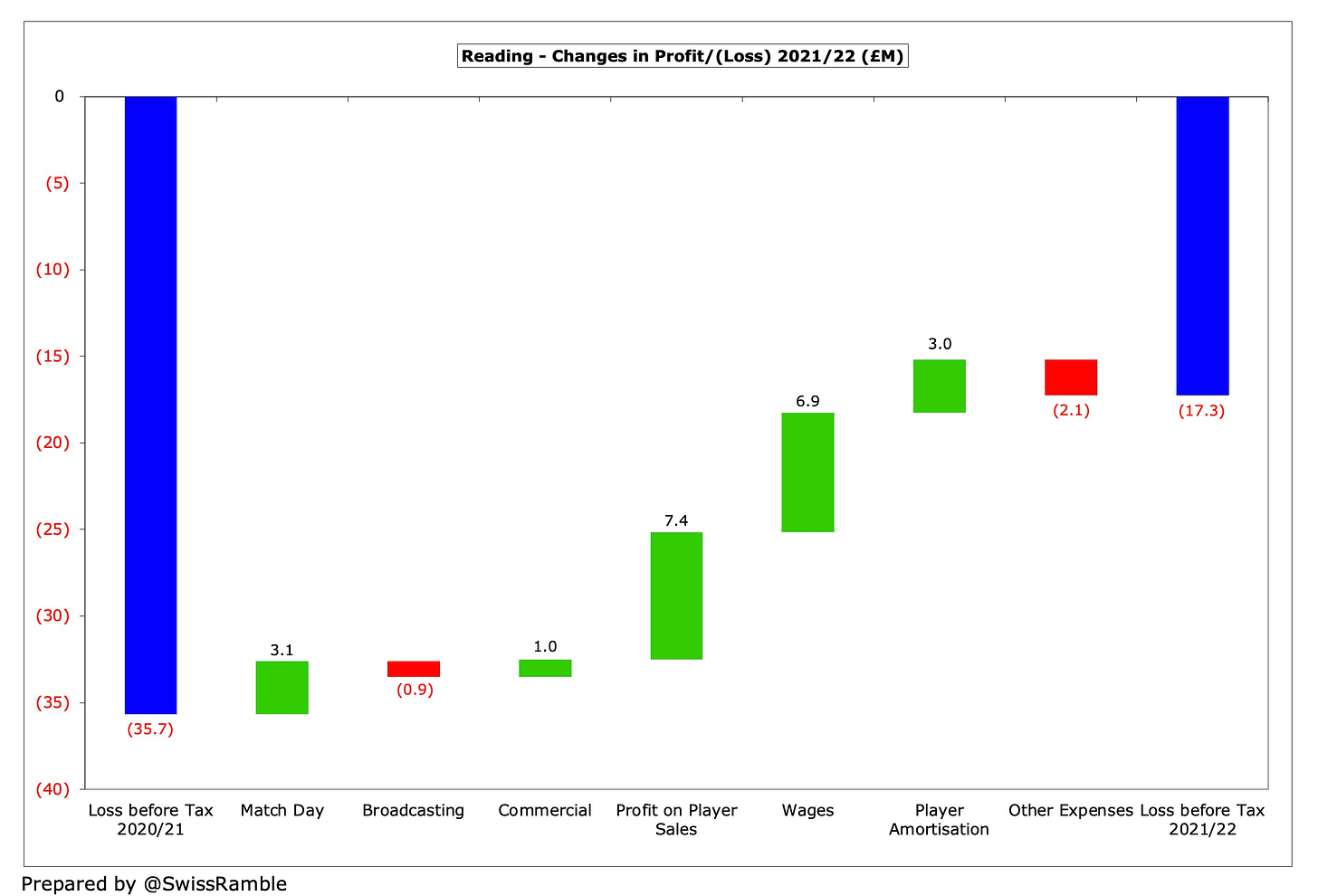These are tough times if you’re a supporter of Reading, as the club has once again been charged with “multiple breaches” of EFL regulations, including failure to pay wages on time on three occasions (October 2022. November 2022 and 2023) and the non-payment of tax to HMRC.
In particular, owner Dai Yongge was personally charged with “causing the club to be in breach of EFL regulations, despite his commitment to fund the cash requirements of the club.”
This raised the possibility of a points deduction for the third season in a row for the Royals. Their first penalty came in 2020/21, when they were deducted 6 points for breaching financial rules, as the EFL said that their FFP loss worked out to £58m for the 3-year monitoring period between 2018 and 2021, which was miles above the £39m limit.
The second strike came in April 2023, when Reading failed to adhere to the terms of the business plan agreed with the FL, thus triggering a suspended 6-point penalty in 2021/22. The club had committed two specific breaches:
It had tried to meet the target by including the profit from the sale of an investment to an entity controlled by the owner, even though related party transactions were not permitted by the EFL.
It did not generate profits from player sales in line with the agreed budget.
Furthermore, Reading have been relegated to League One for the first time since 2002, having spent the last ten years in the Championship. Most frustratingly for the fans, they would have stayed up without the points deduction, so the financial issues have directly resulted in relegation.
Reading have now been under the control of Chinese businessman Dai Yongge (and his sister Dai Xiu Li) for five years, as they own 96% of the club via Renhe Sports Management Co Ltd.
It’s fair to say that the club has been struggling ever since their arrival, so much so that Reading fan groups have recently launched a “Sell Before We Dai” campaign to push for a change in ownership.
The club does appear to be in freefall, as it still has not recruited a permanent manager, more than two months since it parted company with Paul Ince. The pursuit of Chris Wilder has proved fruitless to date.
So let’s take a look at Reading’s most recent accounts from the 2021/22 season for an idea of the club’s financial situation.
Profit/(Loss) 2021/22
Reading’s 2021/22 financial results covered a campaign when the Royals finished 21st in the Championship, which would have set the alarm bells ringing, as this performance represented a steep decline compared to the preceding season, when they just missed out on the play-offs after finishing 7th under Veljko Paunovic.
Off the pitch, Reading’s loss more than halved from £35.7m to £17.3m, as revenue rose £3.1m (23%) from £13.8m to £16.9m and profit on player sales increased by £7.4m from £0.7m to £8.1m. Operating expenses were also cut £8m (16%) from £50m to £42m.
Reading’s revenue benefited from fans returning to the stadium after the lifting of COVID restrictions, which led to increases in match day, up £3.1m from just £580k to £3.6m, and commercial, up £1.0m (26%) from £3.8m to £4.8m. However, broadcasting fell £0.9m (10%) to £8.4m.
Reading cut staff costs again, as wages fell £6.9m (21%) from £32.2m to £25.3m and player amortisation decreased £3.0m (37%) to £5.2m. However, other expenses grew £2.1m (23%) from £9.2m to £11.3m, mainly due to the higher cost of staging games with fans.





